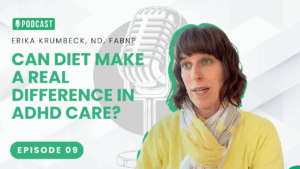

Trusted tools, training, and clinical resources for naturopathic, integrative, and functional pediatric providers. Naturopathic Pediatrics is for:

Gain the tools you need to support your patients with natural therapies rooted in evidence.

Access trusted, practical, and research-backed articles to enhance care and clinical confidence.

Weekly research tips, deep dives and exclusive previews. Practical insights for integrative pediatric care.

Courses, charting templates, practice tools and more. Check out all our individual paid products in the Shop.
Get full access to all the exclusive resources for this course – including charting templates, research citations, MAOA and PDA treatment plans and parent handouts.
Available to licensed healthcare providers and educators only. Please list your credentials (e.g., ND, MD, RN, LAc, or “Educ” for educators).
Get full access to all the exclusive resources for this course – including charting templates, research citations, MAOA and PDA treatment plans and parent handouts.
Available to licensed healthcare providers and educators only. Please list your credentials (e.g., ND, MD, RN, LAc, or “Educ” for educators).
Start learning today: Get clinical pearls, protocols, and research-backed strategies you can apply immediately in practice. CE credits available for ND’s in select courses.
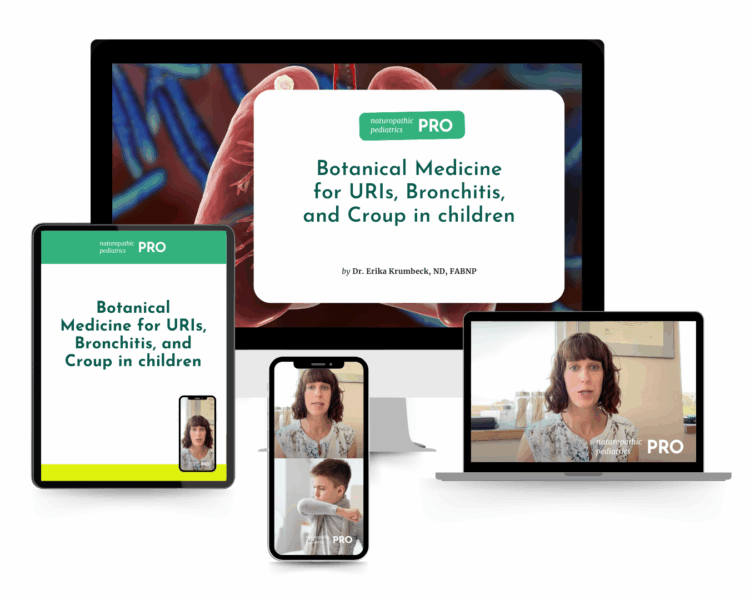
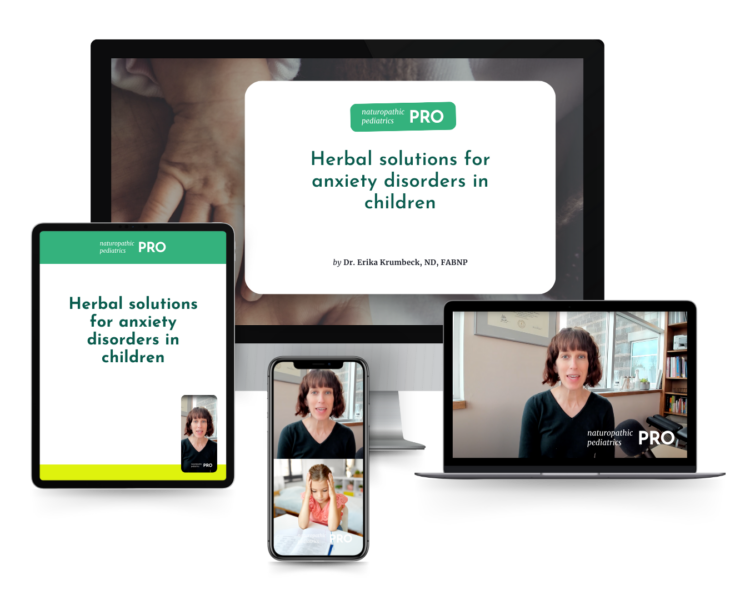
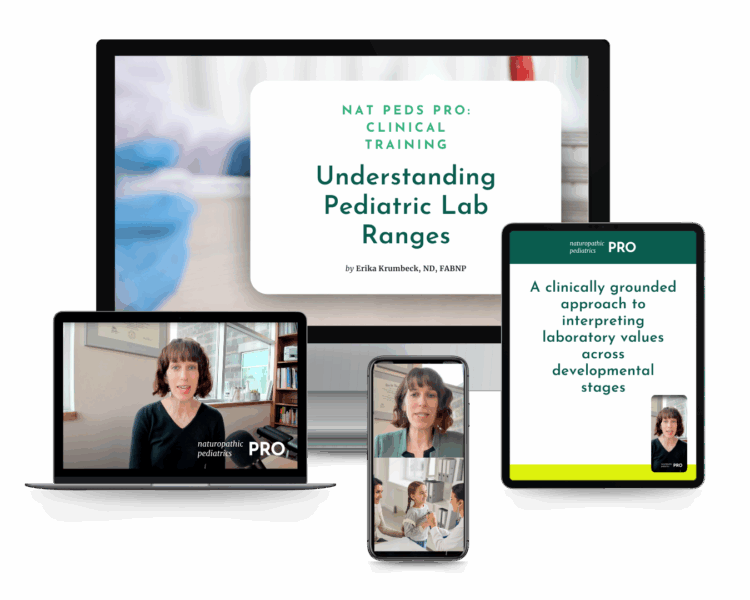
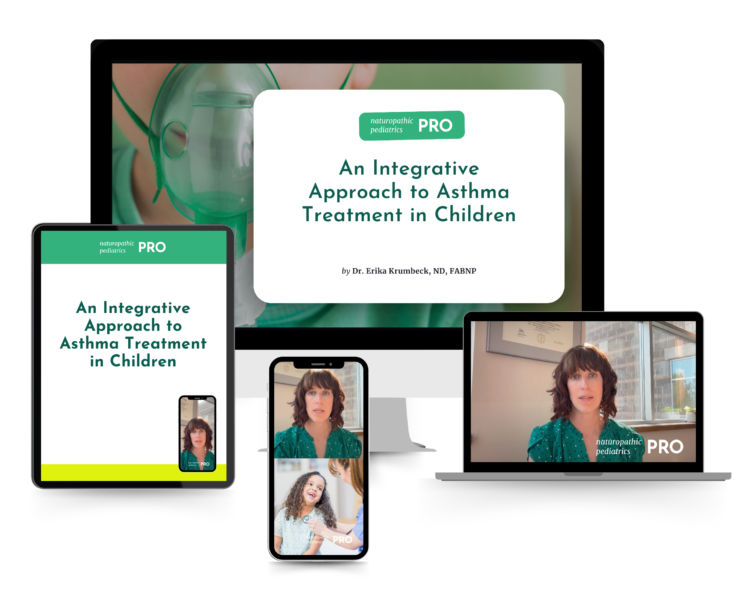
Learn On the Go: Clinical Conversations with Erika Krumbeck, ND
In this episode: Dr. Krumbeck discusses the scientific evidence for various whole-diet nutritional approaches.
00:00 Research shows Elimination Diets are efficacious for ADHD
3:29 Case Study – Elimination Diets in clinical practice
6:04 The Feingold Diet in research
6:53 Salicylate Elimination Diet
9:25 The dangers/downsides of Elimination Diets
10:25 Mediterranean Diet in ADHD (and similar MIND Diet)
11:21 DASH Diet for ADHD (yep, a hypertension diet works for ADHD!)
I am Erika Krumbeck – pediatric naturopathic physician, Fellow of the American Board of Naturopathic Pediatrics, and founder of Naturopathic Pediatrics PRO. Since 2013 I have served families in Missoula, Montana, practicing integrative primary care grounded in both compassion and scientific rigor. I have walked alongside parents, collaborated with a broad spectrum of healthcare professionals, and asked the questions that modern medicine too often forgets to ask: how do we truly support the health of a child – body, mind and spirit?
I built this platform for providers like you – those who want to offer natural, evidence-based therapies with the same confidence and precision as any conventional protocol. Inside you will find clinical tools, treatment guides, and pediatric protocols that are designed not just to educate, but to equip you in real-world practice.
Every resource here is grounded in research. Every guide is made to be used – not just read. This is pediatric integrative medicine, streamlined and strengthened for integrative clinicians who want to do more than keep up – they want to lead.
Welcome to Naturopathic Pediatrics PRO.

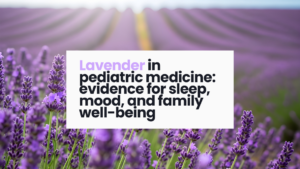
Introduction Lavender (Lavandula angustifolia) is one of the most widely used medicinal herbs for supporting sleep, mood, and emotional regulation in both children and adults. In pediatric care, lavender has gained growing attention as a gentle, non-pharmacologic option for common concerns such as sleep difficulties, anxiety, restlessness, and emotional dysregulation—issues
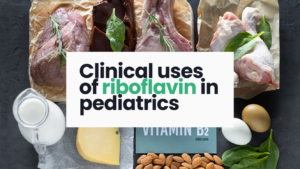
What is riboflavin? Riboflavin, or vitamin B2, is a water-soluble B vitamin that plays a central role in cellular metabolism, mitochondrial function, and redox homeostasis. Biochemically, riboflavin is the precursor for the coenzymes flavin mononucleotide (FMN) and flavin adenine dinucleotide (FAD), both of which are essential for the activity of
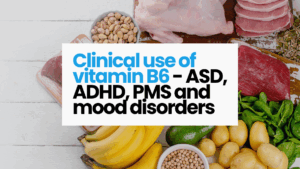
What is the function of vitamin B6? Vitamin B6 is a water-soluble vitamin known as pyridoxine. The active coenzyme forms of vitamin B6 are called pyridoxal-5-phosphate (PLP) and pyridoxamine 5 phosphate (PMP). Vitamin B6 performs a wide variety of functions throughout the body in these active coenzyme forms. It is
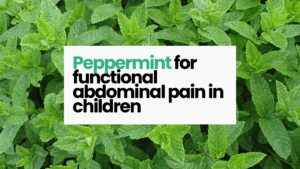
Introduction Functional abdominal pain disorders (FAPDs) in children and adolescents present a complex clinical challenge within the realm of pediatric medicine, characterized by chronic abdominal pain and multifaceted diagnostic criteria. These disorders encompass a spectrum of conditions such as functional dyspepsia, irritable bowel syndrome, abdominal migraine and FAP-not otherwise specified,
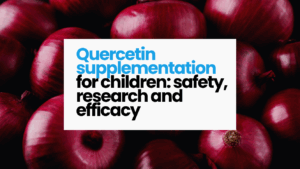
What is Quercetin? Quercetin is a plant pigment found in a variety of fruits, vegetables, nuts, and grains. Quercetin is a bioflavonoid known as a flavonol, important for its antioxidant properties.1 Its antioxidant properties help neutralize free radicals that may otherwise cause inflammation and contribute to a wide range of
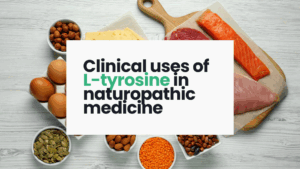
What is Tyrosine and what is it used for? L-Tyrosine, commonly referred to as just tyrosine, is a conditionally essential amino acid that the body makes from another amino acid, phenylalanine. Tyrosine is essential for the production of a family of neurotransmitters called catecholamines that includes epinephrine, norepinephrine, and dopamine.1
Get clinical updates, pediatric protocols, course announcements, and exclusive provider content — straight to your inbox.
No spam. Just evidence-based resources and practical tools for integrative pediatric care.
If you are a research geek this section is for you! Every Monday we summarize a pediatric research study that is relevant for pediatric providers.
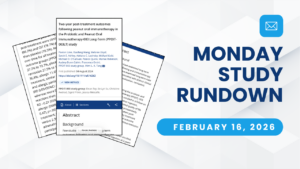
This long-term follow-up study examines outcomes after peanut oral immunotherapy, comparing remission, desensitization, and persistent allergy over two years. Children who achieved remission experienced fewer reactions and significantly greater quality-of-life improvements than those who remained desensitized or allergic. These findings highlight why remission should be the primary goal of OIT in pediatric allergy care.

Read time: 3 minutes Mental health concerns such as anxiety, difficulty concentrating, emotional dysregulation, and sleep disturbance often emerge early in childhood and adolescence. While these symptoms may not always meet criteria for a formal psychiatric diagnosis or require medication, they can still significantly affect a child’s wellbeing, relationships, and
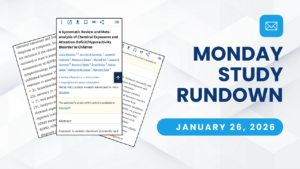
A review of evidence linking early chemical exposures to ADHD and neurodevelopmental risk, with practical prevention guidance for pediatric clinicians. (3-minute read)
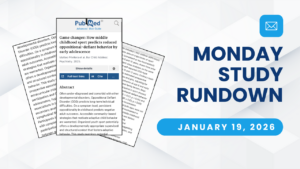
Read time: 2 minutes Oppositional behavior is a frequent and complex concern. Children who struggle with irritability, defiance, or emotional reactivity rarely do so in isolation; these behaviors often coexist with learning differences, sensory sensitivities, family stress, or immature self-regulatory systems. Even without meeting diagnostic criteria for ODD, children who
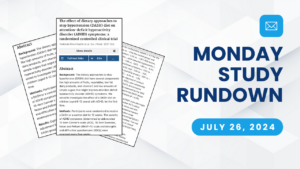
This week, we are looking at the potential benefits of the DASH (Dietary Approaches to Stop Hypertension) diet in managing ADHD symptoms in children aged

This week, let’s dive into a compelling German study on a triple herbal blend with St. John’s Wort, Valerian, and Passionflower for “nervous agitation” in
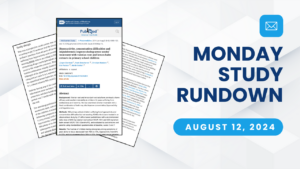
This week, we’re exploring exciting new findings on the effects of a combination of valerian root and lemon balm extracts in children struggling with concentration,
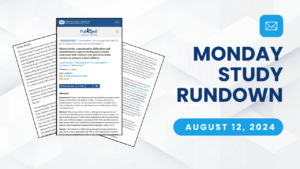
Welcome to this week’s Monday Study Rundown! Today, we’re diving into an intriguing study on the use of lavender oil aromatherapy as a supportive treatment